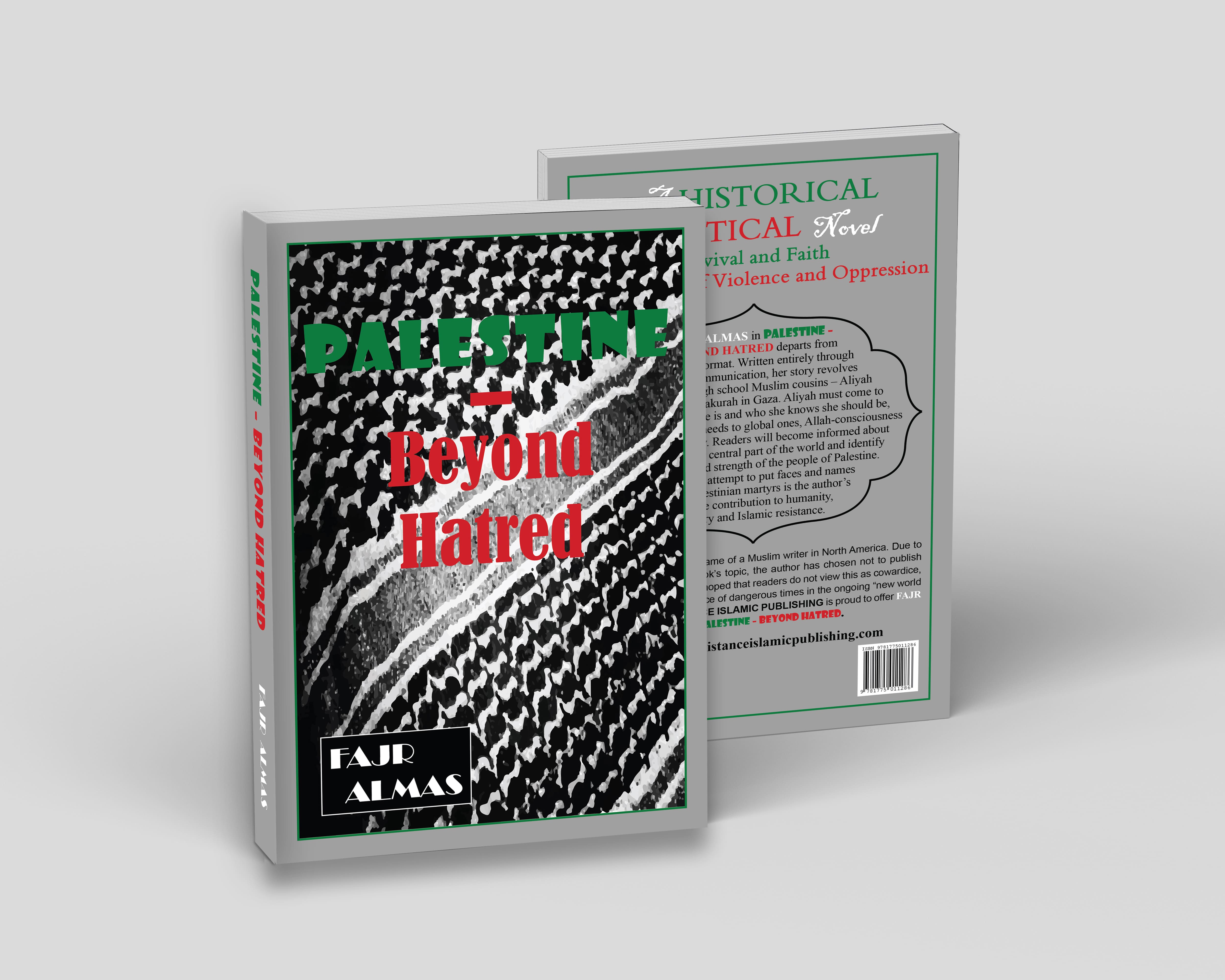The Issue of Evils
Blog Post 81
Rabi al-Awwal 29, 1447 – September 22, 2025

(This is Part 3 of Ayatullah Murtadha Mutahhari’s (1) discussion on good and evil taken from his Divine Justice (1992, 2004). Due to the fact that his words are superior to ours, we have heavily quoted him in this blog post. Part 1, entitled “Good and Evil,” was posted on June 29, 2022 in Blog Post #53 and Part 2, entitled “Persistent Study of Good and Evil,” was posted on October 1, 2024 in Blog Post #71. Both of those blog posts utilized Ayatullah Mutahhari’s Fundamentals of Islamic Thought: God, Man and the Universe (1985)).
Introduction
Ayatullah Murtadha Mutahhari in his book, Divine Justice (1992, 2004), discusses “the objections and problems related to ‘Divine Justice.’ They “are of several types: discriminations, annihilations and non-existences, faults and defects, and afflictions.” Previously in the book, he discussed the first one. In this blog post, the other three are discussed under the heading “Evils.” It is a fitting discussion as we
continue to witness the evil of the zionist state in its on-going horrendous genocide against the Palestinian people, especially in Gaza.
Ayatullah Mutahhari begins the discussion by considering the philosophers’ answers on the issue of evils in three parts:
“A. What is the essence of evils? Are evils real, existential things, or are they non-existential (adami) and relative?
“B. Whether evils be existential or non-existential, are good and evil separable or inseparable? In the second case – that they are inseparable – is the entirety of the universe, with all its goodnesses and evils, good or bad? That is, do goodnesses predominate over evils, or do the evils of the world predominate over its goodnesses? Or does neither predominate over the other, with them being equal.
“C. Whether evils be existential or non-existential, and whether they be separable from goodnesses or not, is that which is evil actually evil, without there being any aspect of goodness in it; that is, without it being a preliminary or basis for one or several goodnesses? Or is there one or rather several goodnesses hidden in every evil, every evil producing one or several goodnesses?”
Ayatullah Mutahhari outlines his answers thus: The first part – “the dualists, who maintain two types or sources of existence” – will be answered.
In “the second part, an answer will be given to…the materialists, who consider evils to be an objection to Divine wisdom, and also the objection of those who, by mentioning the problem of evil, find fault with Divine justice.”
“The third part…reveals the beautiful and unique order of the world of existence, and it can be considered an independent answer - albeit sufficient - or a useful complement to the first answer.”
Ayatullah Mutahhari first reveals his method of discussing the topic and answering the problem of evils. His is “in a new fashion,” although it contains the same elements of Islamic philosophy, especially of Mulla Sadra. Essentially they are the same with the difference being that Ayatullah Mutahhari is “studying the issue of evils from the perspective of ‘Divine Justice.’” Islamic philosophers discussed it in Divine Unity when refuting the dualists or in “‘Divine providence and knowledge’ and how Divine decree (qada) relates to evils.” Since they have used that perspective, “their answer pertains directly to refuting the question of ‘duality of origin’ or the manner of relation of Divine decree (qada) to evils, and can only be used indirectly in the discussion of ‘Divine Justice.’”
The Issue of the Duality of Existence
“The basis of the objection of the dualists and their supporters…is that if existing things in their essence are of two types - good and evil - they must necessarily originate from two types of sources, so that both goodnesses and evils relate to a separate creator.” Ayatullah Mutahhari says that they “wished to exonerate God of evil, and ended up charging Him with having an associate.” Since they “have divided the world into…good and evil and consider the existence of evils to be extraneous, or rather detrimental,” they thus “naturally consider them to be from not God but rather a power in opposition to God. God is like a well-intentioned but weak human being who is tormented by existing conditions and is not pleased with them, but is faced with a wicked and ill-intentioned rival who, in opposition to His desire, creates evils and vices.”
The dualists cannot “harmonize belief in the unlimited power and unchallenged will of God and His uncontested decree with belief in His Wisdom, Justice, and Goodness.” In Islam, Allah Subhanahu wa ta’ala is “the origin of all existence and possessor of unending mercy and supreme wisdom.” Islam does not “find fault with His supreme will and uncontestable power; it relates everything to Him, even Satan and his leading astray.”
In Islam's view, “there is no evil in the order of creation;
what exists is good, and the existing order is the best order.
Nothing more beautiful than what exists is possible.”
This intellectual answer “relies on a particular philosophy in which the issues of existence and nonexistence are studied in depth. The answer…is that ‘evils’ are not real and actual existent things for them to have need of a creator and an origin. This point can be elucidated in two ways: that evil is nonexistential, and that evil is relative…The objection of the duality of existence is eliminated in its entirety.”

Evil is Non-Existential
“The essence of ‘evils’ is nonexistence. That is, all evils are of the form of non-existence and non-being.” This idea has been around since ancient Greece and is attributed to them, specifically Plato, in books of philosophy. Since that time, it has been analyzed “better and to a greater extent.” It is “correct and fundamental.” Although it is difficult material to understand, Ayatullah Mutahhari requests the readers “to persevere and try to understand the intent. We think the matter is important enough to be given attention, and of course we will try to explain the matter as simply as possible.”
The intent of saying ‘“Evil is non-existential’ is not that that which is known as ‘evil’ does not exist.” That “is obviously false” because “we see clearly and with our senses that blindness, deafness, sickness, oppression, injustice, ignorance, inability, death, earthquakes, and so on exist. Neither can we deny the existence of these things, nor their being evil…[The] intent is also not that since evil is non-existential, therefore evil does not exist; and since evil does not exist, human beings have no obligation, since the obligation of man is to combat evils and evil people and acquire virtues and support good people. And since every condition is good and not evil, one must always be satisfied with the current situation, and must rather consider it the best possible condition.”
Ayatullah Mutahhari proclaims that he is not denying the existence of blindness, injustice, sickness, etc., nor their evilness, nor the obligation of people and their role in changing the world and perfecting society. He writes: “The overall ascent of the world – and especially humanity – and the mission of humanity in managing that which has been placed on its shoulders is a part of the beautiful order of the world.” He is talking about the fact “that all of these are forms of ‘non-existential things’ and ‘imperfections,’ and their existence is of the form of the existence of ‘deficiencies’ and ‘vacuums,’ and they are evil because they are themselves non-being, deficiency, and emptiness, or are the source of non-being, deficiency, and emptiness.”
Thus, “the role of humanity in the necessary
ascending order of the world is to compensate
for deficiencies, fill up the vacuums, and eliminate
the sources of these vacuums and deficiencies.”
Once we accept this first step, “its effect is that it drives from one’s mind the question, who created evils? Why are some beings good and some evil? It makes clear that that which is evil is not of the form of being, but of the form of emptiness and non-being.” And so “it eliminates the dualists’ claim “that existence has two branches, or rather two sources.”
There still remains the discussion of evils in light of Divine justice and infinite Divine wisdom.
Ayatullah Mutahhari writes, “Good and evil things in the world are not two separate and differentiated types from one another in the sense that, for example, inanimate objects or minerals are separate from plants and plants are separate from animals and create particular groups.” It is not correct to think that “evil things are a specific group of things whose essence consists of evil and in which there is no good; and good things in their turn are another category separate and differentiated from bad things.” What is correct is that “good and evil are mixed together; they are inseparable. In nature, where there is evil there is also good, and where there is good there is also evil. In nature, good and evil are bound and mixed together in such a way that it is as if they have been compounded together, not a chemical compound, but a deeper and more subtle compounding, of the type of the compounding of being and non-being.”
As well, “being and non-being do not comprise two separate groups in the external world. Non-being is nothing and emptiness and cannot occupy a particular place side by side with being.” However, “in the natural world, which is the world of potentiality and actuality, movement and evolution, and contradiction and opposition, wherever there are forms of being, forms of non-being also apply.” For example, ‘blindness’ is not “a specific thing and a tangible reality that exists in the eye of a blind person. Instead, ‘blindness’ is nothing but the lack of ‘sight’ and it itself has no reality.”
Ayatullah Mutahhari continues, “Good and evil, too, are like being and non-being; in fact, fundamentally good is the same as being and evil is the same as non-being. Wherever we speak of evil, there is definitely a non-being and lack (of something) involved. ‘Evil’ is either itself of the form of non-being, or it is a being that necessitates a form of non-being; that is, it is a being that, inasmuch as it is itself, is good, and it is evil inasmuch as it necessitates a non-being; and it is only evil because it necessitates a non-being, not for any other reason. We consider ignorance, poverty, and death to be evil. These by their essence are non-being. We consider poisonous and dangerous animals, bacteria, and afflictions to be evil. These are not non-being by their essence, but they are beings that necessitate non-being.”
‘“Ignorance’ is the lack and non-existence of knowledge. Knowledge is a reality and an actual perfection, but ignorance is not a reality. When we say, ‘An ignorant person lacks knowledge,’ it doesn’t mean that he possesses a particular quality called ‘lack of knowledge,’ and knowledgeable people don’t possess that quality.” Before people acquire knowledge, they are ignorant. They do not lose anything when they acquire knowledge. “If ignorance were an actual reality, acquiring knowledge – since it would be alongside a loss of ignorance – would simply be the changing of one attribute for another, just as a body loses one form and quality and acquires a different form and quality.” The same is true of poverty and wealth and death and life. A person who is poor lacks something called wealth. A person who is dead has lost the attribute of life.
“Poisonous and dangerous animals, bacteria, floods, earthquakes, and affliction…are evil because they cause death or the loss of an organ or ability, or prevent abilities from reaching perfection. If poisonous animals did not cause death and sickness, they would not be evil.” The same is true of each of these things. “Evil is in those casualties and losses. If we call a beast of prey evil, it is not because its peculiar essence is the essence of evil, but because it is a cause of death and loss for something else. In reality, what is evil by essence is that loss of life itself.”

Ayatullah Mutahhari points out, “In terms of the relation between cause and effect, usually those very actual deficiencies, meaning poverty and ignorance, become causes of things like bacteria, floods, earthquakes, war, and so on, which are evils of the second type, meaning that they are beings that are evil inasmuch as they are a source of deficiencies and non-being. In order to combat these types of evils, we must first combat the first type of evils and fill vacuums such as ignorance, inability, and poverty, so that evils of the second type don’t come about.”
It is the same thing with “moral actions and ugly qualities. Injustice is bad because it destroys the ‘right’ of the oppressed. A ‘right’ is something which a being deserves and which one must receive…
“Knowledge is a perfection for a human being which the innate human capacity demands and moves toward, and, for this reason, deserves. If someone is denied the right to learn and is prevented from gaining knowledge, that is oppression and evil, since it prevents a perfection and causes a deficiency. Similarly, oppression is evil for the oppressor as well since it contradicts his higher potentials.”
“Evils are all of the form of non-being [so] the answer to dualists becomes clear. The objection of the dualists was that since there are two types of beings in the universe, the universe must necessarily have two types of origins and creators.”
“There is no more than one type of being
in the universe, and that is the existence
of good things; evils are all of the form
of non-being, and non-being is not a
created thing. Non-being is from a
‘not creating,’ not from a ‘creating.’”
The universe does not have two creators:
a creator of beings and a creator of non-beings.
In conclusion, Ayatullah Mutahhari provides the following for us. “The example of being and non-being is like that of the sun and shadow. When a pole is put up in the sun, the area that remains dark because of the pole and doesn’t become lighted by sunlight is called a ‘shadow’… A ‘shadow’ is darkness, and darkness is nothing but the non-being of light. When we say that light emanates from the originating centre, one cannot ask where the shadow has emanated from and what the centre of darkness is. Shadow and darkness have not emanated from anything and have no independent source and centre of their own.” Think about it… Inshallah…
To be continued, inshallah…
Next Topic, inshallah: Evil is Relative
Resource
Mutahhari, Ayatullah Murtadha. (1992). Divine Justice. Trans. by Abidi, S.S.H., Alidina, M. and Mirza, S.A. (2004). Qum, Islamic Republic of Iran: International Center for Islamic Studies. Accessed from https://www.al-islam.org/divine-justice-murtadha-mutahhari/evils#three-aspects-discussion

